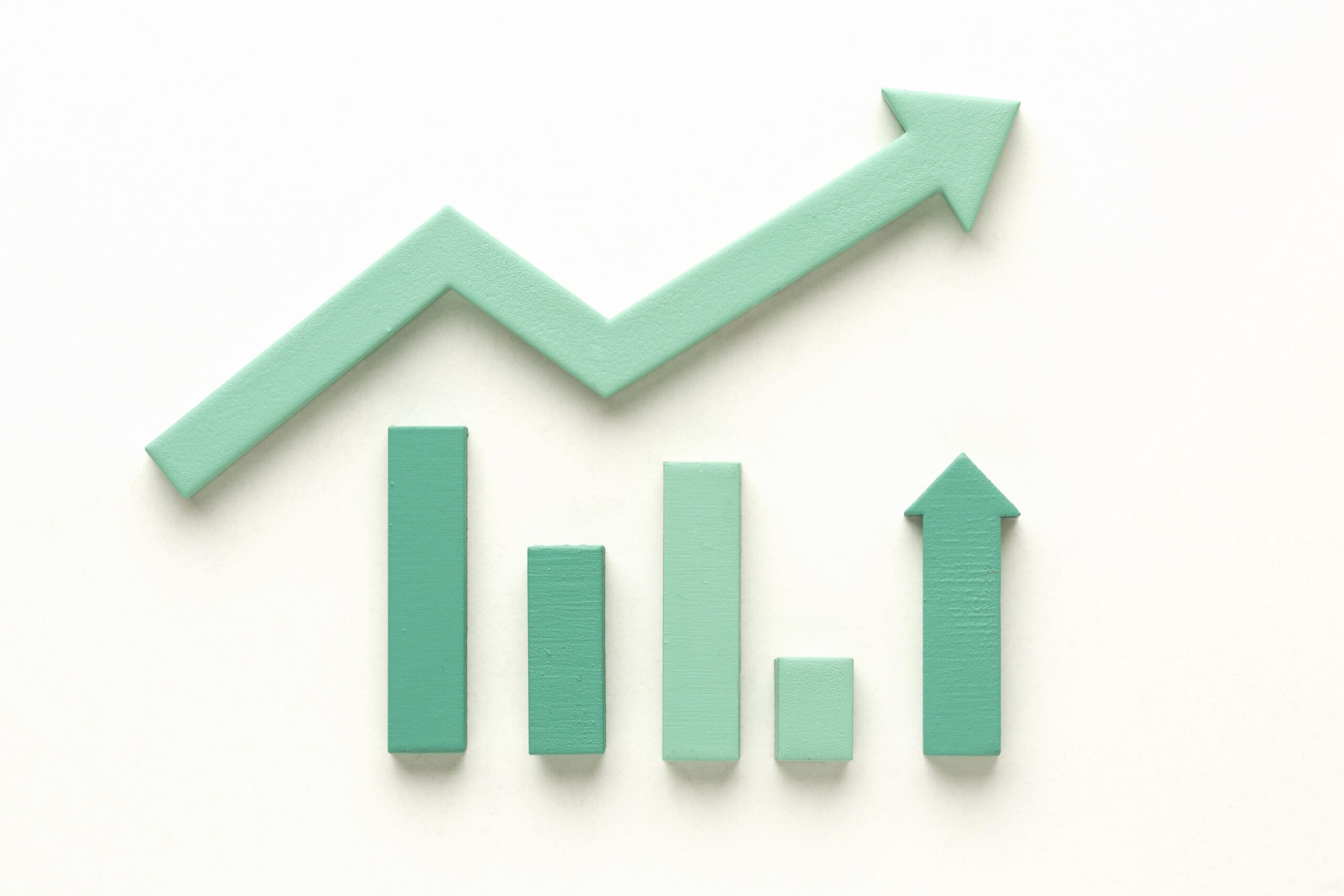Introduction
The Economic Survey 2023-24, published by the Government of India’s Ministry of Finance, offers an in-depth analysis of India’s economic performance over the past year. Guided by Chief Economic Advisor V. Anantha Nageswaran, this year’s survey highlights India’s robust economic recovery post-pandemic, its resilient financial sector, controlled inflation, and progressive structural reforms. Additionally, it examines the challenges and opportunities presented by climate change and the nation’s strategies for energy transition. Here, we break down the key highlights of the document, followed by a focused discussion on environmental impact and climate change.
Key Highlights
State of the Economy
India’s economy demonstrated a strong recovery post-pandemic, with real GDP in FY24 being 20% higher than in FY20. The economy grew by 8.2% in real terms in FY24, following growth rates of 9.7% and 7.0% in the previous two financial years. The current account deficit improved significantly to around 0.7% of GDP, and the country registered a surplus in the last quarter of FY24. Public investment has played a crucial role in sustaining capital formation, with signs that the private sector is beginning to take over the investment baton.
Global Economic Scenario
Globally, the economy grew by 3.2% in 2023 despite geopolitical uncertainties. The global environment has stabilized, providing a supportive backdrop for India’s economic ambitions.
Monetary Management and Financial Intermediation
The banking sector in India has shown remarkable resilience with double-digit growth in bank credit, a decline in non-performing assets (NPAs), and improved asset quality. The stock market capitalization to GDP ratio for India is the fifth largest globally. The Reserve Bank of India (RBI) has maintained a steady policy rate, focusing on controlling inflation and supporting economic growth.
Prices and Inflation
Retail inflation moderated due to lower global energy prices and domestic price cuts in LPG, petrol, and diesel. However, food inflation remained volatile, influenced by adverse weather conditions. Rural inflation was higher compared to urban areas due to the higher weightage of food prices in rural consumption baskets.
External Sector
India’s trade sector showed resilience amidst global turmoil. Services exports performed exceptionally well, cushioning the overall trade deficit. The current account deficit improved significantly, with positive net foreign portfolio investment inflows. External debt was managed prudently, maintaining a stable debt-to-GDP ratio and ensuring ample foreign exchange reserves.
Medium-Term Outlook
The IMF projects India’s growth rate at 6.8% for 2024-25, positioning it as the fastest-growing G20 economy. The medium-term growth strategy focuses on structural reforms, supply chain resilience, self-reliance, and technological advancements. Challenges such as water stress, air pollution, education and skill deficits, and cybersecurity need to be addressed to sustain high growth rates.

Focus on Environmental Impact and Climate Change
Energy Transition Challenges
The Economic Survey 2023-24 underscores the complexity and prolonged nature of energy transitions. Moving from fossil fuels to renewable energy sources is expected to take decades due to the significant scale of change required and the current heavy reliance on fossil fuels. The survey highlights that the Paris Agreement, while important, tends to prioritize global temperature targets over broader development goals. This has placed developing countries like India under pressure to curb emissions while developed nations continue to increase their energy demand.
Carbon Tax at Borders
A significant concern raised in the survey is the threat of a carbon tax on imports by developed nations. This measure undermines the principle of common but differentiated responsibilities, which is a cornerstone of international climate agreements. The survey argues that such unilateral measures could have adverse effects on the economic growth of developing nations.
Adaptation Strategies
Adaptation to climate change is critical for India, given its high vulnerability to weather extremes and sea-level rise. The survey emphasizes the importance of enhancing resilience in agriculture, promoting micro-irrigation, and implementing strategic research programs like the National Innovations on Climate Resilient Agriculture (NICRA). Government initiatives such as the Pradhan Mantri Krishi Sinchayee Yojana (PMKSY) and the Swachh Bharat Mission aim to improve water use efficiency, enhance agricultural resilience, and promote sustainable development.
Low Carbon Development and Energy Efficiency
India’s energy needs are projected to grow significantly by 2047. To meet these demands while achieving net-zero emissions by 2070, the country must transition to a diversified mix of energy sources, including renewables. Key initiatives like the PM-Surya Ghar Yojana and the Green Hydrogen Mission are pivotal in increasing the share of non-fossil fuels in the energy mix. Additionally, energy efficiency programs such as the Perform Achieve and Trade (PAT) scheme, the Standards and Labelling (S&L) program, and the Energy Conservation Building Code (ECBC) have led to substantial energy savings and reductions in greenhouse gas emissions.
International Cooperation and Financing
The economic survey 2023-24 calls for enhanced international cooperation and greater financial support from developed nations to achieve long-term climate goals. While India’s climate action has primarily been financed through domestic resources, substantial international finance is crucial for meeting its ambitious targets. Collaborative research and development efforts and technology transfers are essential components of this strategy.
Balanced Approach to Climate Change
The economic survey 2023-24 advocates for a balanced approach to addressing climate change, integrating both mitigation and adaptation strategies. It emphasizes the need for sustainable economic growth that does not compromise on development goals while effectively addressing climate challenges. This approach includes promoting green technologies, improving energy efficiency, and ensuring that climate policies are inclusive and equitable.
Institutional Framework and Carbon Markets
India is putting in place an institutional framework to support carbon markets, which will play a crucial role in pricing carbon and incentivizing low-carbon development. The survey outlines the structure of the Indian Carbon Market, which includes key institutions like the Bureau of Energy Efficiency (BEE) and the Central Electricity Regulatory Commission (CERC). These institutions will oversee the functioning of the carbon market, ensuring transparency, accountability, and effectiveness in reducing greenhouse gas emissions.
Government Initiatives and International Commitments
India’s commitment to international climate agreements and initiatives is reflected in its active participation in global forums and its ambitious national targets. The economic survey 2023-24 highlights India’s progress in meeting its commitments under the Paris Agreement and its leadership role in initiatives like the International Solar Alliance (ISA) and the Coalition for Disaster Resilient Infrastructure (CDRI). These initiatives aim to promote renewable energy, enhance resilience to climate change, and foster international cooperation.
Conclusion
The Economic Survey 2023-24 presents a comprehensive view of India’s economic performance and strategic vision for the future. It highlights the country’s robust economic recovery, resilient financial sector, and controlled inflation. The survey also underscores the significant challenges and opportunities in addressing climate change and transitioning to a low-carbon economy. Through a balanced approach that integrates mitigation and adaptation strategies, India aims to achieve sustainable economic growth while meeting its climate commitments. The success of these efforts will depend on continued government support, international cooperation, and the active participation of all stakeholders in the journey towards a sustainable and prosperous future.
